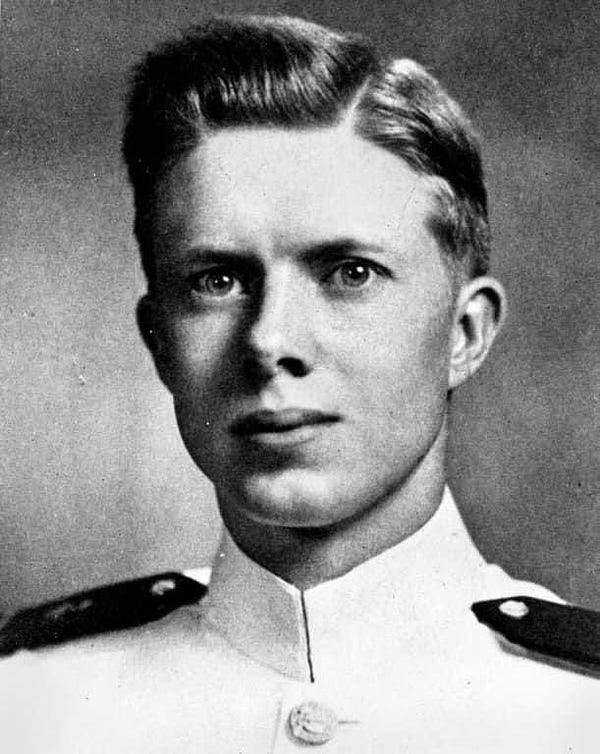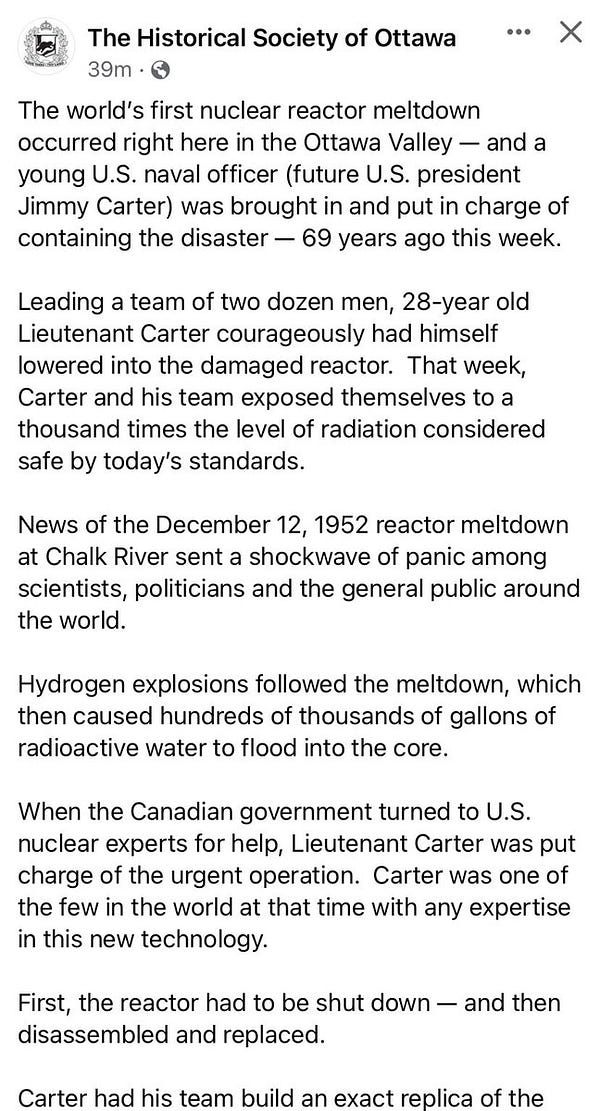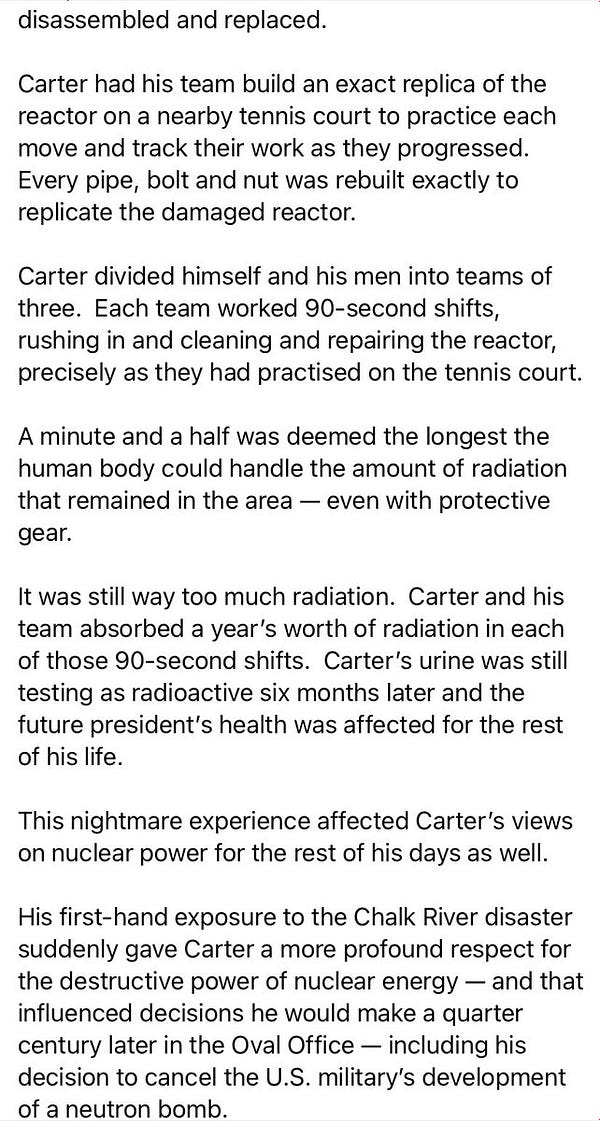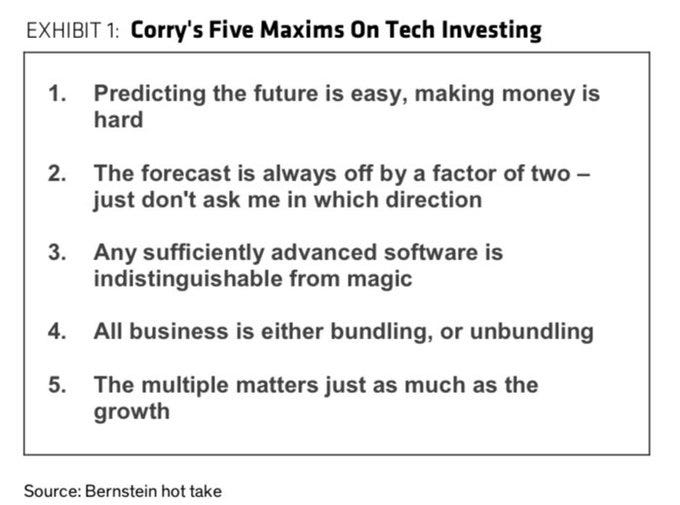Workshop Note: Learning (And Failing?) in Public with Jim O'Shaughnessy
“Do I contradict myself? Very well then I contradict myself. (I am large, I contain multitudes.)” Walt Whitman
Hi all.
I had a lot of fun joining Jim on Infinite Loops late last year - the episode was released this week. Meeting Jim would have never been possible without Twitter and learning in public. I feel very lucky and grateful that these connections can happen.
That said, I admit that I was briefly triggered when I saw the episode’s title: “Learning and Failing in Public.” Jim has become a friend and teacher and I knew that the title was not meant in any bad way. Quite the opposite: I embraced being vulnerable and open in public and it captured the conversation well. And yet, a part of me became defensive: “No, I don’t want to be a failure! Does Jim think I’m a failure?”
It seems silly, I know. But it was a feeling that came up. And if there’s one thing I’ve learned in years of therapy, it’s that pushing my feelings away reflexively leaves me empty and very self-unaware. Instead, I try to pause for a moment and examine what is going on (which isn’t the same as acting on the feeling). I’ve written before about the concept of Internal Family Systems which posits that in addition to our “self” we have multiple internal parts that act like a cast of characters (or a family). These parts are stuck in past experiences and, when triggered, can influence our thinking and behavior in a misguided effort to help or protect us. Tim Ferriss’ conversation with Richard Schwartz, the creator of the IFS model, is a good way to get started if you’re interested (and Schwartz’s book Internal Family Systems Therapy for a more comprehensive overview).
I’ve found it to be a useful framework because it lets me disentangle and reflect on conflicting emotions and reactions. It provides me with better language: Instead of saying “I” am irritated by the podcast’s title, I can take a step back and examine whether it’s a specific part of me that had a strong reaction. Perhaps there is a childlike part that is worried about abandonment and quickly reacts to the notion that a person I admire thinks of me in a negative way. IFS makes it possible to address these moments and sources of inner conflict (and possibly even resolve the experiences and worries that the different parts are holding on to, eliminating the infinite loops of their potentially damaging behaviors).
I hope you’ll enjoy my conversation with Jim about trying to “fit in,” the great reshuffle, exploring vs. exploiting, learning from history, and teachers from Kirk Kerkorian to Michael Milken.
And if you think emotions don’t matter to your investing or business efforts, listen to this podcast with Denise Shull. Denise explains the tangible value of greater self awareness, particularly of negative emotions. I really enjoyed this open and vulnerable conversation - kudos to Bill.
"Future embarrassment is a huge factor in trading and investing, particularly for anyone managing money publicly. Ask, what's the worst thing that can happen? Being embarrassed in front of investors, in front of family. They're trying to avoid that future embarrassment. That prediction of a future feeling is coloring their judgement in the moment."
"It is a great irony that before you publish something a great worry is what people will think and afterwards a great worry is that no one seems to care." Hermann Peterscheck
This feels like the right time for an update on the pipeline. In addition to a couple of essays and Q&As, I am working on:
The piece on Michael Bloomberg’s origin story should go out Sunday. I wrote a detailed thread on him in 2020 and finally read his autobiography. I put together everything I learned about how he built the company whose product I miss dearly.
As a follow-up to Bloomberg, I’m reading up on another technology company with a unique origin story and lots of lessons for how to build companies today.
After profiling compounder investor Henry Ellenbogen, I plan on digging into another asset manager with a differentiated philosophy and culture. Maybe I’ll get lucky and get some firsthand input and commentary to enrich the piece.
I’m working my way through The Contrarian, a fairly critical book of Peter Thiel. I previously read Zero to One and Conspiracy: Peter Thiel, Hulk Hogan, Gawker, and the Anatomy of Intrigue and it’s time for a profile. I’m thinking about splitting this into two pieces: a public essay and a paywalled collection of investment insights and quotes. I just learned about a new book coming out about Paypal and will hold off until I’ve had the chance to skim it.
Sebastian Mallaby is will soon be releasing his new book on venture capital which is full of insights on how the different investors and firms evolved. I look forward to sharing my perspective once the book has been published.
I’m also reading a book called Lessons from the Titans consisting of case studies of legendary industrial companies including some popular compounders (from GE and Boeing to Transdigm, Danaher, and Honeywell). The book was written by equity research analysts and emphasizes culture, leadership, and business models. It’s really interesting so far and I plan on sharing my takeaways.
Today's post is sponsored by Tegus. Tegus is an on-demand digital research platform on which investors share their expert calls. Their library currently has some 23,000+ calls covering many public and private companies and it's growing every day. It's a beautiful business model (I wish I was an investor!) and I could see it scaling up to cover any company and industry you can imagine. I think of it as being able to tap into a library of conversations between industry insiders. I'd encourage you to check it out - they offer free trials.
“The best thing you can do as an investor after a decade is lobotomize yourself so you can restart from a fresh sheet with no baggage about ‘what works.’” @ebitdaddy90
People knew it was a bubble.
Corry is one of my favorite thinkers when it comes to the lessons of history to technology investing. I recommend his threads on Lessons From The Tech Bubble, his Five Maxims on Tech Investing, learning the wrong lessons, and the few survivors among the early crop of internet companies. Sadly, because of his role at Google it looks unlikely that he will be allowed to comment further in a bespoke Q&A.😪
LESSON #1: Everybody knew it was a bubble
LESSON #2: Calling bubbles is easy, making money is hard
LESSON #3: Nobody knew the bubble popped until months after it did
LESSON #4: "Tech" bubble was a misnomer... it was really a large cap growth bubble
LESSON #5: Most large cap tech stocks in the bubble had real businesses with strong fundamentals
LESSON #6: Fundamentals follow price, not vice versa
Perhaps combine this with @JerryCap’s “What was your favorite signal of the top in the tech bubble?”
Deep dives on dealmakers:
Bill Foley
Finally a write-up of this under-the-radar investor and “one of the most active deal junkies you’ll ever come across.”
"Managers like Foley tend to give investors cognitive dissonance: some investors choose to ignore the bad altogether, joining the fanboy club. Some get so dogmatic about the bad that they can’t see any of the good"
"Foley’s ultimate quality is that he is a true and tested moneymaker. But caveat emptor, he always makes sure to extract his chunk of change for doing so."
"Foley has unusually accurate and quick judgment when it comes to understanding and handicapping deals. He’s had a very high hit-rate across many deals in many different industries."
Three “Asian Godfathers”
Pradyumna Prasad wrote about the book Asian Godfathers - an account of Asian business tycoons across three time periods: “first in the late 19th and early 20th century when big businesses made their money via commodities, during World War 2 when fortunes were created by trading with Japanese occupiers, and in the post WW2 world when states were being formed in the region.”
The story of Li Ka-shing looks like it is straight out of From Predators to Icons and I look forward to reading the book.
“I don't know who did Li Ka-Shing’s PR but I really want to meet them. They’ve converted his image from what could have been “evil monopolist who made his money fleecing consumers” to “hardworking old man with a frugal lifestyle”.
There are a few things that are wrong with that: first he had several family connections that made it much easier and second he made his money in collusion with the government.
What is the most surprising about Li’s businesses is that he has made almost all his money in oligopolies. In almost every single business Li is involved in, there are barriers to competition in it - and all of them would not be allowed in any competitive economy. From real estate to shipping and grocery stores I don’t think Li’s businesses have seen competition what his equivalents in America or Britain would have seen.”
Dan Wang’s annual letter: China, the US, and opera.
I really enjoyed Dan’s 2020 letter and this year’s letter was excellent as well. It offers an intriguing exploration of China’s metropolises, a perspective on the state’s involvement in business (and a contrast with the US), and an unexpected take on opera.
“While it’s too soon to say that regulatory actions have snuffed out entrepreneurial dynamism in China, it’s easier to see that a decade of continuous tightening has strangled cultural production. I expect that China will grow rich but remain culturally stunted.
An important factor in China’s reform program includes not only a willingness to reshape the strategic landscape—like promoting manufacturing over the internet—but also a discernment of which foreign trends to resist. These include excessive globalization and financialization.
The leadership is targeting a high level of manufacturing output, rejecting the notion of comparative advantage. That static model … has leaked out of the lecture hall and morphed into a political justification for only watching as American communities of engineering practice dissolved.”
“The Chinese state has long placed greater value on resilience over efficiency, which has dragged down its performance on metrics that economists care about, like return on assets. … The US focus on efficiency has revealed the brittleness of its economy, which has neither the manufacturing capability to scale up domestic production of goods nor the logistics capacity to handle greater imports. Decades of American deindustrialization as well as an aversion against idle capacity has eroded domestic manufacturing.
Since the US government is incapable of structural reform, companies now employ algorithm geniuses to help people navigate the healthcare system. This sort of seventh-best solution is typical of a vetocracy. I don’t see that the US government is trying hard to reform institutions; its response is usually to make things more complex (like its healthcare legislation) or throw money at the problem.”
“Enjoyment of opera is today mostly a private madness, and those who cherish Italian works make up a special category of the deranged.”
New competition.
Keep an eye out for new innovative and highly competitive players coming out of China (TikTok had more traffic than Google in 2021?!). I’m talking about companies like Shein.
"For years, European brands like Zara and H&M have embodied fast fashion ... Shein isn’t chasing runway trends — rather, it often knocks off items seen on TikTok and Instagram, where hype cycles move significantly faster. ... Whereas Zara typically asks manufacturers to turn around minimum orders of 2,000 items in 30 days, Shein asks for as few as 100 products in as little as 10 days.
Over the past decade, thousands of Chinese clothing manufacturers have begun selling directly to international consumers online, bypassing retailers that traditionally sourced their products from the country.
The secret is Shein’s internal software, which connects its entire business from design to delivery. ... Each of Shein’s suppliers gets their own account on the platform, which spits out information about what styles are selling well and can also quickly identify which might become future hits.
Online shopping in the country has evolved into a form of entertainment, featuring livestreamers, flash sales, and pop-ups that compel consumers to scroll through the newest products. Shein brought that style to the West, and it really works with Gen Z.”
That time Jimmy Carter rescued Ottawa.
Future president Jimmy Carter “was physically lowered into a damaged nuclear reactor in Chalk River, Ontario, Canada, and exposed to levels of radiation unthinkable today after an accident.”
“The Chalk River experience made him realize the awesome and potentially very destructive power he was dealing with. It gave him a true respect for both the benefits but also the devastatingly destructive effect nuclear energy could have.”




How to be happy.
“Factors that don't correlate much with happiness include: age, gender, parenthood, intelligence, physical attractiveness, and money (as long as you're above the poverty line).
Factors that correlate moderately with happiness include: health, social activity, and religiosity.
Factors that correlate strongly with happiness include: genetics,16 love and relationship satisfaction, and work satisfaction.”
“Extroversion is among the best predictors of happiness, as are conscientiousness, agreeableness, self-esteem, and optimism.”
I recommend you check out the “methods for becoming happier” and see if you can pick up one or two good ideas.
“Develop the habit of gratitude. Savor the good moments throughout each day Find your purpose and live it. Find a more fulfilling job. Improve your relationship with your romantic partner, or find a different one. As with finding a more fulfilling job, this one is complicated, but can have major impact. Go outside and move your body. Spend more time in flow. Practice mindfulness regularly. Avoid consumerism.”
If you’ve ever played with the idea of becoming a full-time private investor.
“Be very careful taking advice from anybody who hasn't done this themselves.”

Enjoyed this piece? Please let me know by hitting the ❤ button. It makes my day to see whether my readers like the content (it really does!) Thank you!
If you enjoy my work, please consider sharing it with friends who might be interested.🙏





I coach people around finding work that will improve happiness. What I’ve found is that people often know what work will satisfy them because they know what lights the, up. It’s their own thinking that gets cluttered and makes it more complicated. They also engage in destination thinking, trying to pick a job that seems good and then figure out how to be happy later.
Two exercises have helped my clients immensely. One is an energy audit, where they make two lists, things that energize them and things that drain their energy. The other is a future pacing question in which they imagine themselves 3 years in the future, looking back, and explaining why their life is amazing.